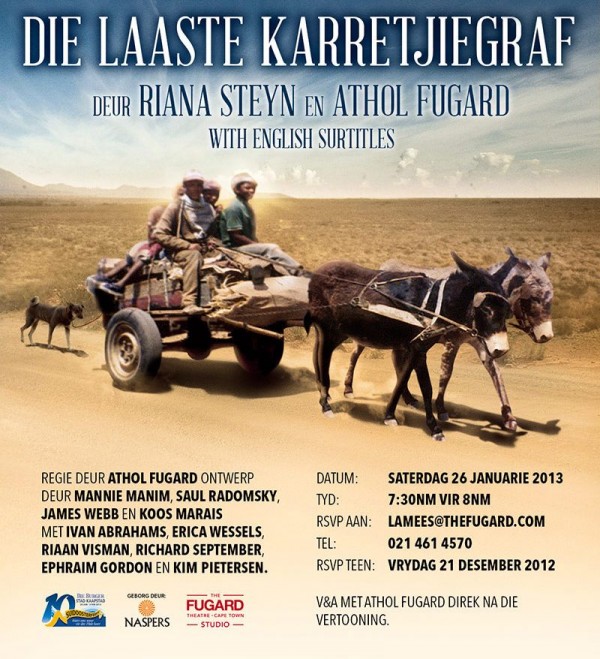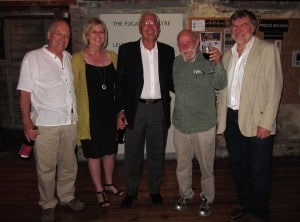
Renowned playwright Athol Fugard’s first ever play written in Afrikaans Die laaste karretjiegraf [The last Karretjie (“donkey cart”) grave] will be performed until at the Fugard Theatre until 23 February 2013 as part of the Suidooster Festival. Fugard writes in the programme notes that he wrote the play in honour of his Afrikaner mother who asked him, shortly before her death to write a story in her language. The play focuses on the Karretjie People, itenerant sheepshearers in the Karoo who are direct descendants of South Africa’s first inhabitants. Doing research on the Karretjie People he came across a Master’s thesis in Anthropology by Riana Steyn who gave him access to her work and eventually co-wrote the play with him.
Fugard wrote the play during his two terms as fellow at STIAS. STIAS fellows and personnel were invited to attend a preview of the play on 26 February 2013. The play gives a poignant perspective on the end of a unique way of life. The grave of the family matriarch, ouma Mieta, occupies a central place on stage, emphasising the fact that they are no longer able to travel around as sheep-shearers and will have to take refuge in a squatter camp in the town of Colesberg. The play centres on her son Koot’s release from jail after serving a sentence for the murder of his second wife in a drunken rage and tells of his family’s struggle for survival in the interim, their meagre existence and their modest hopes for the future. Although the presence of Sarah, an anthropologist of Afrikaner heritage, at first provides a counterpoint to the existence of the Karretjie people, she eventually loses her distance from the people who were the objects of her scientific study to become their equal in pain, guilt, regret, love and hope. The experienced actor Ivan Abrahams gives a powerful performance as the main character Koot, who gets the opportunity to re-establish his human dignity in his interaction with the anthropologist Sarah.

